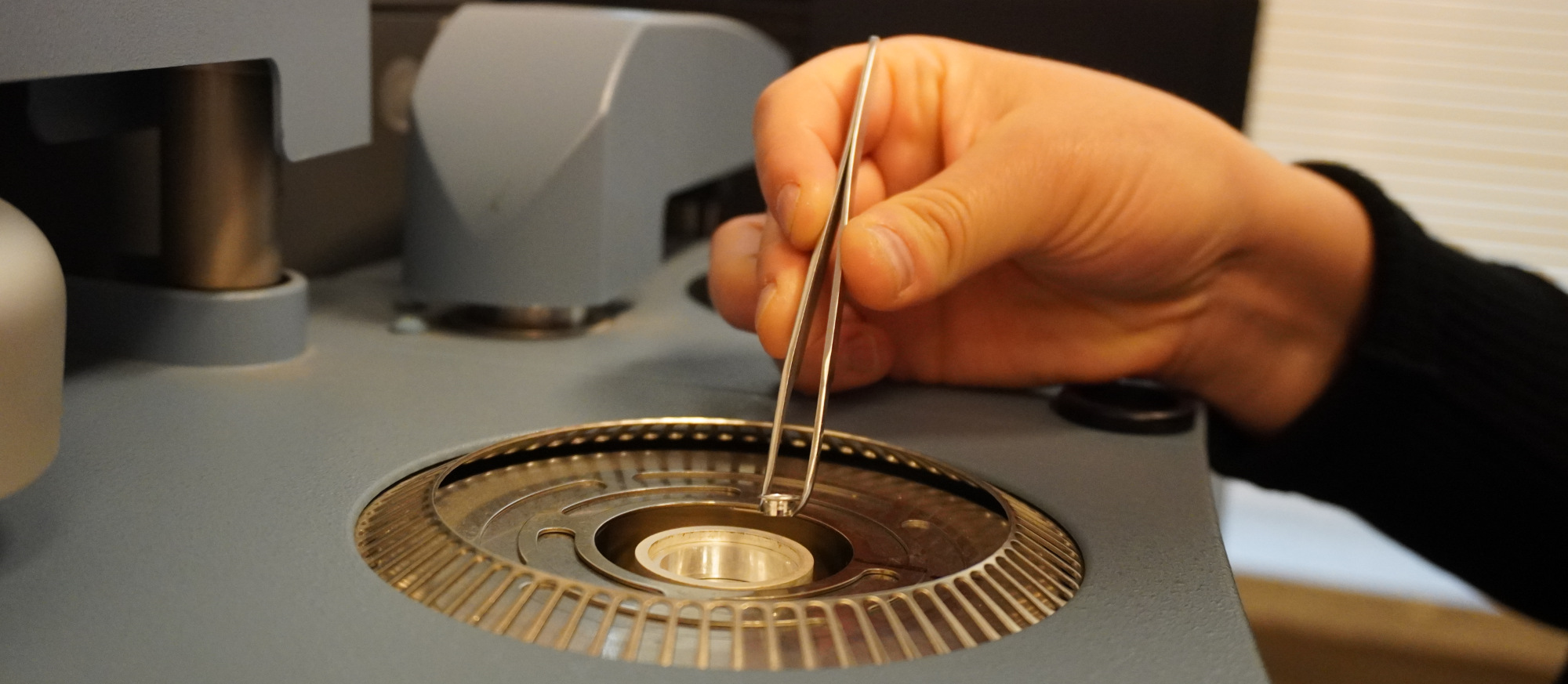Research
The research at the Department of Chemistry mainly focuses on the area of physical chemistry of surfaces. We study phenomena at the interface between liquid or solid and gas phases. The central research motif is adsorption studied from the point of view of theory, but mainly practical use. We are interested in natural adsorbents (coal, clay) and we try to prepare new adsorption materials on the basis of carbon airgel or organo-clay composites. Experimental equipment enables us to describe in detail our adsorbents (size distribution of particles, specific surface area, pore volume and pore size distribution, spectral characteristics, surface charge and zeta potential, heating behaviour, etc.). Adsorption we study has extensive applications, for example, in gas and waste water purification processes (removal of organic and inorganic substances); it is important in many industrial technologies and advanced biomedical research. Adsorption efficiency (pollutant removal) is measured by means of advanced analytical techniques, mainly by HPLC-MS or using spectral methods (FTIR, UV/VIS, AAS). We also devote great attention to the preparation and study of nanoparticles, especially metal oxides, studying their photocatalytic activity and interaction with proteins.
Research areas
Physical chemistry of surfaces
The research is focused on the adsorption of inorganic and organic substances on solid material surfaces:
- study of adsorption mechanisms,
- preparation of new types of adsorbents on the basis of carbon airgels,
- study of organo-clay composites for adsorption uses,
- study of the possibilities of biosorption of selected drugs,
- study of the essence and principles of the oxidation and auto-ignition processes of carbon substances in the nature,
- study of the behaviour of substances at heating (including the determination of thermal stability) in inert or oxidising environment with the study of the evolution of gases,
- assessment of the stability of the dispersion of solid particles in the liquid medium, and measurement of particle size distribution in the liquid medium and on a dry basis,
- assessment of surface parameters of substances (internal surface, micropore volume or micropore size distribution),
- study of electrochemical properties of solids using voltammetry.
Biochemical analysis
The research topic is:
- Detection of trace levels of pharmaceuticals and hormonal contraceptive agents in waters that are potential environmental contaminants.
- Study of qualitative and quantitative composition of secondary plant metabolites, mainly phenolic substances and their involvement in photoprotective processes.
- Chromatographic analysis of photosynthetic pigments, engagement of the xanthophyll cycle in protective mechanisms of higher plants.
- Determination of antioxidant activity of low molecular plant metabolites, study of the effect of growth conditions on their content in plants.
- Identification of selected pharmaceuticals in water and more complex matrices.
- Qualitative and quantitative analysis of selected polyphenols in plant material (plant extracts, foodstuff, food supplements).
- Analysis of antioxidant activity of samples, qualitative and quantitative analysis of selected low molecular antioxidants.
Updated: 15. 03. 2024




















